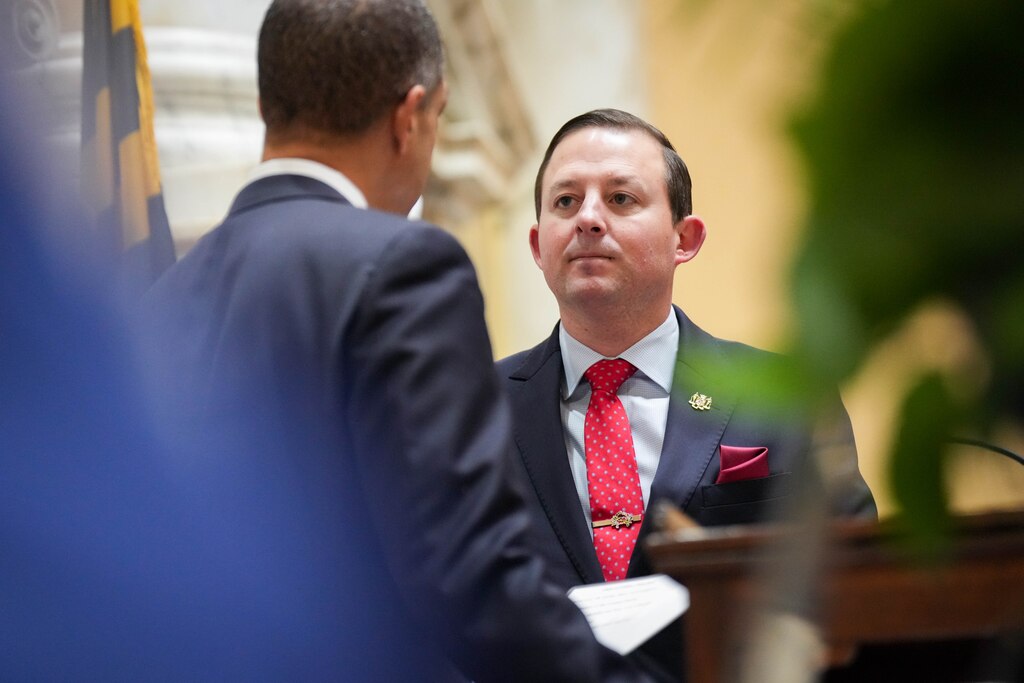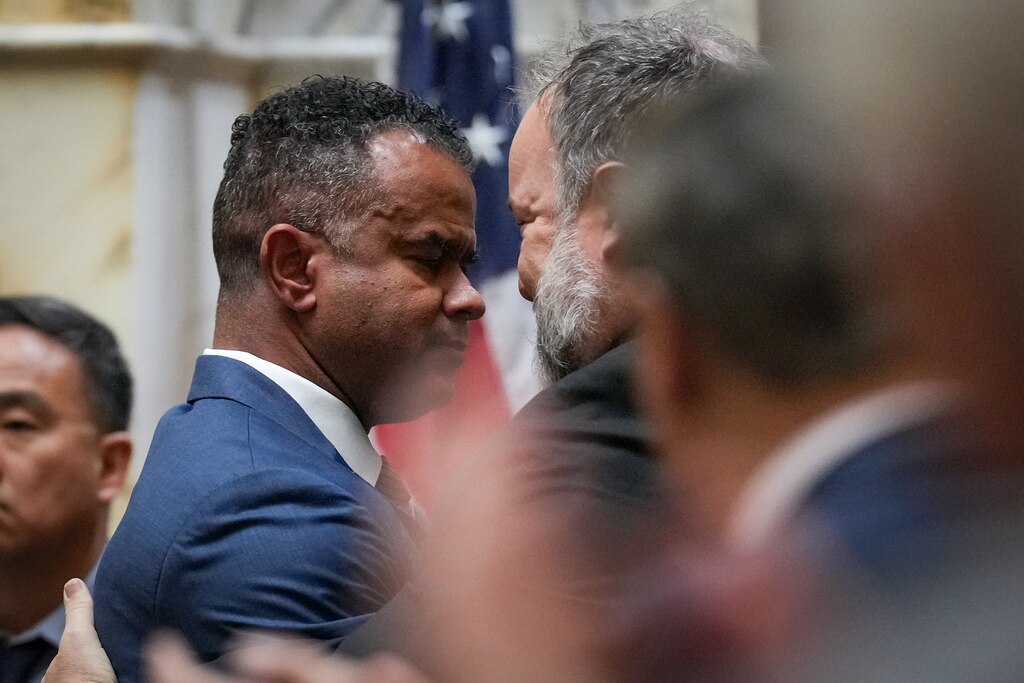Maryland’s state government faces a potentially large bill to compensate people who were abused as children in the juvenile justice system, with no plan to pay for it.
Under the Child Victims Act, passed in 2023, about 3,500 people have sued the state for damages arising from child sexual abuse they endured while in state care, mainly in the juvenile justice system. The law expanded the ability of people to file lawsuits against organizations that employed or supervised abusers, including cases that are decades old and were previously past the time limits.
It’s unknown exactly how much the state might have to pay once the cases are resolved, but lawmakers were told this week that settlements could be coming in the next several weeks while they are in session in Annapolis.
The law allows for damages of up to $890,000 against state and local governments per occurrence of abuse, leading to the potential of large jury awards or settlements, particularly in cases where children suffered systematic abuse.
The Baltimore Banner thanks its sponsors. Become one.
“This is potentially an enormous liability for the state,” David Romans, the top fiscal advisor at the nonpartisan Department of Legislative Services, told lawmakers on Monday.
Romans said it’s possible that many of the cases are settled before the end of the General Assembly session in April. And there’s nothing in the budget to account for possible Child Victims Act payments, Romans warned lawmakers.
Lawmakers may need to adjust the budget for the current year, as well as next year’s proposed budget that they are just now beginning to review, according to the Department of Legislative Services.
The potential financial pressure from settlements comes at a time when state government already is facing a tough budget situation. In order to close a nearly $3 billion gap for the next budget year, Gov. Wes Moore proposed nearly $2 billion worth of cuts to planned spending and hundreds of millions of dollars in tax increases.
Attorney General Anthony Brown’s office represents the state in the Child Victims Act lawsuits. A spokesperson declined to comment on the financial implications of the cases.
The Baltimore Banner thanks its sponsors. Become one.
Moore, a Democrat, declined to comment through a spokesperson, as did House of Delegates Speaker Adrienne A. Jones, a Baltimore County Democrat.
Senate President Bill Ferguson said the state has an obligation to compensate people who suffered tremendously due to the state’s actions.
“These are very real costs associated with very real, horrific scenarios of what’s happened to young people who have been violated when in the state’s custody,” said Ferguson, a Baltimore Democrat. “We have to figure out a way to make it right.”

Ferguson said he’s been in contact with the attorney general’s office, though he noted it’s tricky to get a handle on the scope of the potential payments, given that the cases are in active settlement negotiations.
Kathryn Robb, national director of the Children’s Justice Campaign, said it’s important for the state to find a way to compensate people who were harmed.
The Baltimore Banner thanks its sponsors. Become one.
“The sky is not falling,” she said. “Other states have handled this just fine. With any law or piece of legislation, there is generally a benefit and a burden, and if the benefit is protecting our children and making sure our children are safe, I would go with that benefit every day of the week and so should lawmakers.”
The purpose of the law is not just to provide justice for childhood sexual abuse survivors, she said, but to protect children in the future by encouraging stronger institutional policies against abuse.
The passage of the Child Victims Act was the culmination of years of painful work by lawmakers. State law had a strict deadline for individuals to file lawsuits against institutions and organizations that employed or supervised abusers. Proponents of the Child Victims Act argued that many victims of child sexual abuse often don’t fully realize the harms that were done to them until later in life, after the statute of limitations had passed.
The Child Victims Act enabled those survivors to sue institutions including churches, schools and government agencies like the Department of Juvenile Services. While some states opened short time frames for those survivors to sue, Maryland is one of a handful of jurisdictions that permanently opened the door to filing the older claims, according to the Children’s Justice Campaign.
Del. C.T. Wilson, a childhood sexual abuse survivor who spent years pushing for the law, said Tuesday the Child Victims Act “wasn’t about money.”
The Baltimore Banner thanks its sponsors. Become one.
“Unfortunately, the lawyers have gotten involved,” he said, referring to plaintiffs’ attorneys who have swept into Maryland to handle sexual abuse claims since the law’s passage.
Wilson, a Charles County Democrat, said he is supportive if the state needs to put guardrails on how much money abuse survivors can collect.
“No amount of money is going to undo the damage that was done,” he said. “This is about giving victims the opportunity to approach their abusers.”

Maryland plaintiffs’ attorney Jonathan Schochor said lawmakers’ concerns about the state budget are misplaced and should be aimed at the sexual abuse that occurred in juvenile detention centers and other state facilities.
“I think we need to refocus,” Schochor said. “Instead of panicking about dollars, let’s panic about what happened to these survivors, all of whom were children and all of whom are Maryland residents.”
The Baltimore Banner thanks its sponsors. Become one.
The state government isn’t the only major organization grappling with how to compensate victims of child abuse.
Ahead of the law going into effect in October 2023, the Catholic Archdiocese of Baltimore filed for bankruptcy, anticipating a flood of claims related to abuse that went unchecked within the church for generations. Hundreds of claims are tied up in the ongoing bankruptcy proceedings.
The Child Victims Act is also facing a constitutional challenge over the legality of retroactively removing a statute of limitations for these types of civil claims. The Maryland Supreme Court heard arguments in September and has yet to rule.

Comments
Welcome to The Banner's subscriber-only commenting community. Please review our community guidelines.